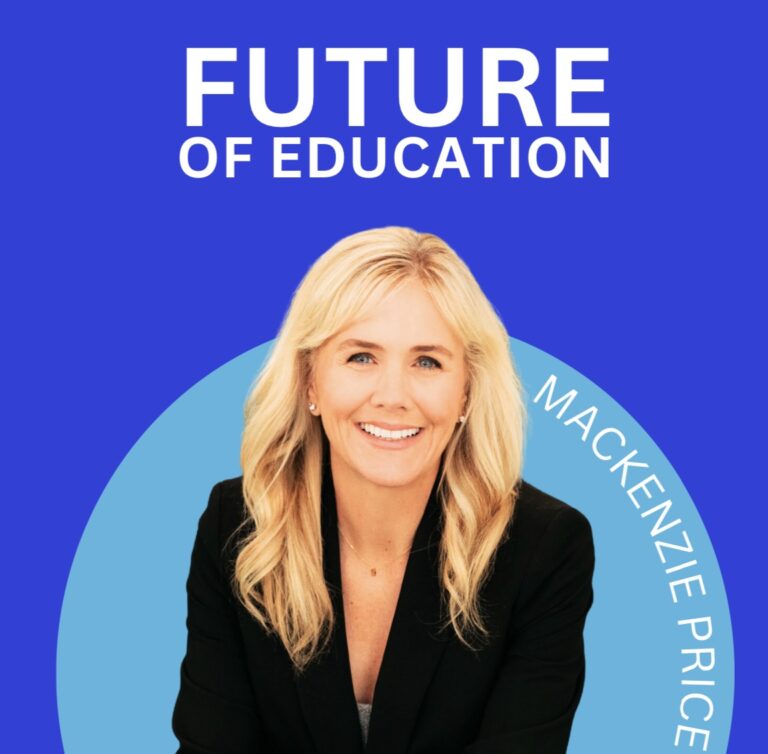The post-Affirmative Action landscape — Nolvia Delgado // Kaplan Educational Foundation
Nolvia Delgado
Kaplan Educational Foundation

- Part 1Building social capital for 1st gen students — Nolvia Delgado // Kaplan Educational Foundation
- Part 2 The post-Affirmative Action landscape — Nolvia Delgado // Kaplan Educational Foundation
- Part 3The importance of study stimulation — Nolvia Delgado // Kaplan Educational Foundation
Show Notes
-
01:09The post affirmative action landscape and its impact on first gen studentsThe ruling to remove affirmative action will make it more challenging for selective universities to attract overlooked and underserved students. Despite this, students must recognize that these institutions still value and want them.
-
02:04The impact of the affirmative action ruling on college applicationsThe box indicating racial identity has been removed from college applications. This change hinders schools from considering the unique challenges and lived experiences of black, brown, and low-income students in the admissions process.
-
03:28Supporting students in the post affirmative action landscapeStudents aspiring to attend these institutions should leverage interviews and campus visits to make themselves known and emphasize their suitability. Equally important is that adults in their lives reassure students that they belong at these institutions.
-
04:06The impact of affirmative action bans on diversity in college educationCalifornia's passing of Proposition 209 led to a substantial reduction in the enrollment of black and brown students in higher education institutions. Ultimately, larger systemic changes are required to address and rectify these disparities.
-
04:46Addressing equality concerns in the absence of affirmative actionAffirmative action acknowledges challenges for underrepresented and low-income students, recognizing their resilience. Admissions to prestigious institutions are merit-based, and removing affirmative action denies deserving students opportunities to excel at these schools.
-
06:52Challenges and limitations in college admissions post affirmative actionSchools with resources are making efforts to reach students in their communities and convey that they are wanted. However, new rules limit how colleges can use demographic data, impacting the evaluation of students who may have previously benefited from affirmative action.
-
08:04Leveraging technology for college connectionsCOVID prompted schools to use technology for virtual connections, benefiting first-gen students who may face geographical constraints. Students and parents should leverage online resources to connect with colleges beyond their physical locations in this new landscape.
-
09:10The post affirmative action landscape and its impact on employment and recruitmentThe affirmative action decision also has implications for employment. Many employers rely on partnerships with colleges for their hiring pipelines, and the new ruling may alter the diversity landscape within companies as they lose access to a diverse pool of students.
-
09:37How parents and students should approach the college application processParents should reassure their kids that colleges want them and encourage connecting, either in person or using technology, to build a relationship. Additionally, community-based organizations can provide valuable support for students navigating the evolving college landscape.
-
10:12Affirmative action and future legislationCurrently, the focus is on ensuring students continue applying to and attending these schools. While the hope is for change, the immediate priority is getting deserving students into these institutions.
-
10:38Supporting community college students to attend selective institutionsKaplan Educational Foundation focuses on supporting community college students. Their goal is to increase the number of community college students transferring to selective institutions, starting with empowering them to recognize their potential for success.
-
13:03Improving community college transfer rates to four year institutionsWhile over 80% of community college students intend to transfer to a four-year institution, only 14% obtain a bachelor's degree. Community college students need early education on transfer pathways and should start the groundwork for transfer from their senior year of high school.
-
14:32The importance of college education todayCollege remains crucial, especially for first-generation and underserved students. However, it should be complemented with professional experiences like internships to ensure long-term success.
-
15:14How parents can prepare children for collegeListen to your child and support their choice, whether it's community college or another path. Actively engage with schools through info sessions so prospective students can learn about the school while the schools also get to know the prospective students during the decision process.
Quotes
-
"After Proposition 209 was passed in California, the numbers of black and brown students were reduced significantly, and it took years for them to get those numbers back up." - Nolvia Delgado
-
"Students who end up at Harvard, despite their background, end up there because they belong and can do the work. Removing affirmative action takes away the opportunity for students who can perform at those schools." - Nolvia Delgado
-
"A place like Princeton is attainable for community college students, maybe not right out of high school, but definitely after attending community college." - Nolvia Delgado
-
"While over 80% of community college students intend to transfer to a four-year institution, only 14% obtain a bachelor's degree." - Nolvia Delgado
-
"College is definitely important, especially for first-generation and underserved students. But students also need to couple that with professional experiences to support long-term success" - Nolvia Delgado
- Part 1Building social capital for 1st gen students — Nolvia Delgado // Kaplan Educational Foundation
- Part 2 The post-Affirmative Action landscape — Nolvia Delgado // Kaplan Educational Foundation
- Part 3The importance of study stimulation — Nolvia Delgado // Kaplan Educational Foundation
Up Next:
-
Part 1Building social capital for 1st gen students — Nolvia Delgado // Kaplan Educational Foundation
Nolvia Delgado, Executive Director at the Kaplan Educational Foundation, delves into empowering first-generation students in the post-affirmative action landscape. Building social capital prepares students for professional success, equipping them with the skills to network, self-advocate, and connect with mentors. However, first-generation students must navigate several challenges ranging from cultural differences in education to the pandemic’s impact and remote learning. Today, Nolvia discusses building social capital for first-generation students.
Play Podcast -
Part 2The post-Affirmative Action landscape — Nolvia Delgado // Kaplan Educational Foundation
Nolvia Delgado, Executive Director at the Kaplan Educational Foundation, delves into empowering first-generation students in the post-affirmative action landscape. The post-affirmative action era has sparked concerns about access, opportunities, and the overall trajectory for underrepresented students. While the ruling particularly affects first-generation students, there are steps parents can take to help their children navigate this new world of college admissions. Today, Nolvia discusses the post-affirmative action landscape.
-
Part 3The importance of study stimulation — Nolvia Delgado // Kaplan Educational Foundation
Nolvia Delgado, Executive Director at the Kaplan Educational Foundation, delves into empowering first-generation students in the post-affirmative action landscape. Parental support is instrumental in helping first-generation students navigate the post-secondary landscape. From application to graduation and beyond, parents contribute to breaking down barriers, fostering confidence, and providing the necessary resources for their children's academic and career journey. Today, Nolvia talks about the importance of study stimulation.
Play Podcast



